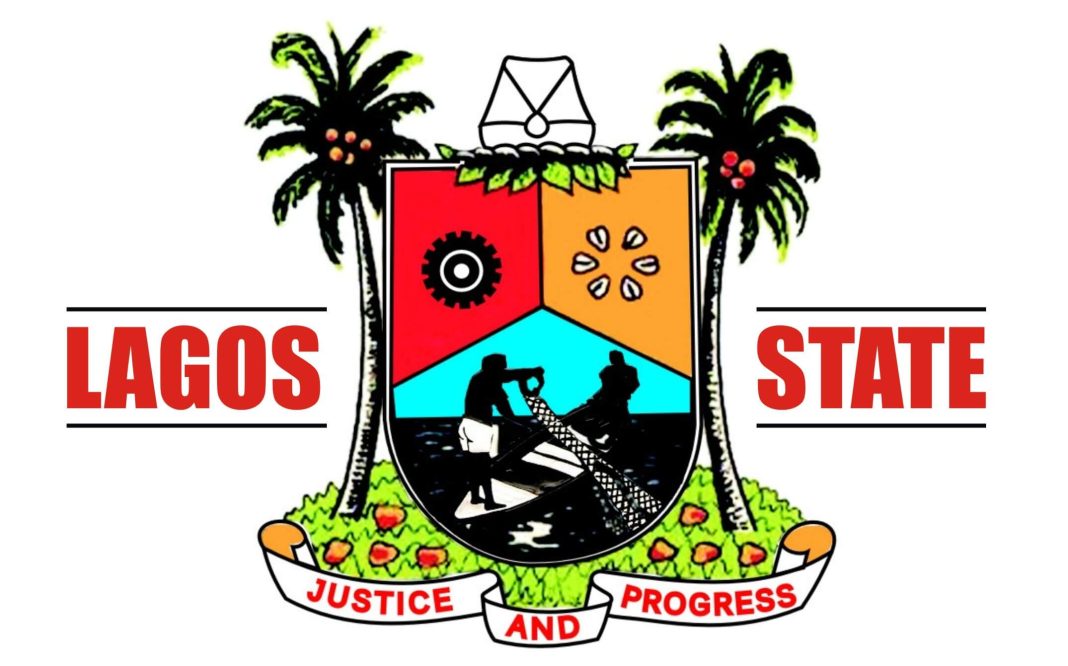Business
Customs intercepts N921bn worth of contraband at Apapa Port

The Comptroller-General of the Nigeria Customs Service (NCS), Bashir Adeniyi, on Wednesday, announced the interception of contraband items worth over N921 billion as the service intensifies enforcement operations at the nation’s ports.
The items included expired food items, unregistered pharmaceutical products and controlled security equipment.
Adeniyi during a press briefing at the Apapa Command of the service said that the seizures were made between January and April.
According to him, the seizures also involved 11 separate interdictions.
He said the prohibited items included five 40-foot containers, two 20-foot containers and four seizures of loosely concealed contraband.
The CG also gave updates on the rollout of the Customs Unified Management Information System, known as B’Odogwu, describing the pilot phase at PTML and Tin Can Island Port as crucial.
He explained that his earlier visits to PTML and Tin Can that morning, before arriving at Apapa, were to gain firsthand insights of challenges faced by stakeholders with the new digital platform.
He admitted that while the B’Odogwu rollout was ambitious and necessary, the service was fully aware that initial implementation would have some hiccups.
“We are not pretending that when we roll out a very serious project of that magnitude that there will be no hitches,” he said.
He added that Customs was approaching the situation with flexibility and innovation, holding stakeholder and bank engagements to address the hiccups in the system’s deployment.
Adeniyi also explained measures towards strengthening enforcement at the Apapa Command, in line with the national strategic economic development plan and executive orders on port operations.
He said the Command had scaled up surveillance across seaports, airports, and land borders in response to evolving tactics by transnational criminal networks attempting to breach the country’s import protocols.
He raised alarm over the rising influx of unregistered pharmaceutical products, particularly sexual enhancement drugs into the Nigerian market, warning that such items posed threat to public health and safety.
Unregistered medicines lacking mandatory certification from the National Agency for Food and Drug Administration and Control (NAFDAC) were seized.
Other items seized included expired margarine products, and restricted security gadgets including drones and telecommunication devices without end-user certificates from the Office of the National Security Adviser.
The seizures included 89 cartons of unregistered pharmaceutical products in container CAAU6514500, 242 cartons in container TCNU6880130, and 1,001 cartons of hydra-sildenafil citrate tablets in container MRSU3041714.
Another 40-footer container was found to contain 1,400 packages of various unregistered drugs, while a fifth had 805 packages falsely declared as cosmetic powder.
The service also intercepted two 20ft containers, GCNU1367992 and GCNU1372704, containing expired margarine products.
Additionally, 60 units of warrior drones without valid end-user certificates were recovered from container MSKU9329923, valued at N15.9 million.
Another 53 helicopter drones, evacuated from a container marked CFAX3, carried an estimated duty-paid value of N2.1 million.
Ten professional FM transceiver walkie-talkies were also confiscated from ENL, while a 20ft container (SUDU1408819) was found to contain 500 packages of active medicine tablets lacking NAFDAC certification.
Adeniyi disclosed that the analysis of these seizures revealed five key smuggling trends.
According to him, first was the disturbing proliferation of sexual enhancement drugs, as five of the 11 containers seized were laden with variants of sildenafil citrate and other related substances.
The CG warned that the indiscriminate use of these drugs without medical supervision could lead to serious health complications, including cardiovascular risks.
He said a second trend was a growing pattern of misdeclaration, with importers labeling pharmaceuticals as general merchandise or cosmetics in an attempt to evade detection.
According to him, two containers had pharmaceutical products concealed beneath skin creams.
He noted a third trend is the diversification of contraband shipments, with importers mixing pharmaceuticals, expired food, and restricted technology items in a single container.
This, he said, suggested the involvement of sophisticated criminal networks rather than isolated smugglers.
He said the fourth trend was the strategic selection of countries with weaker pharmaceutical export controls, indicating a deliberate attempt to exploit regulatory loopholes.
He identified the last trend of increasing importation of non-pharmaceutical security threats, including drones and communication gadgets, which raised significant concerns for national security.
The CG emphasized that the seizures were not isolated efforts but part of a broader enforcement drive that had seen the service record 22 narcotics-related interceptions in the first quarter of 2025 alone.
He added that the seizures accounted for a duty-paid value of N730 billion, representing 34.6 percent increase when compared to the same period in 2024.
He credited the results to the service’s intelligence-led enforcement strategy and collaboration with regulatory agencies like NAFDAC, Nigeria Drug Law Enforcement Agency and Office of the National Security Adviser.
Adeniyi warned that the service would not relent in its commitment to securing Nigeria’s borders and protecting the lives of its citizens.
He commended officers and men of the Apapa Command for their vigilance and professionalism, urging stakeholders within the international trade ecosystem to comply strictly with import regulations.
Concluding the briefing, the CG declared a restricted area around the five containers carrying dangerous pharmaceutical materials, urging all present to maintain a safe distance to avoid any risk of exposure.
He urged the public to remain alert and make use of confidential channels to report suspicious imports, emphasising that collective vigilance would curb the growing threat of organised transnational smuggling.
His removal, according to the statement, was allegedly based on non-compliance with the Bendel State Legal Notice 132 of 1979, guiding traditional succession.
Business
Alleged breach: Court strikes out FCCPC charge against MTN executives

The Federal High Court in Abuja on Thursday, struck out the criminal charge filed by the Federal Competition and Consumer Protection Commission (FCCPC) against MTN Nigeria Communications Plc and its top officials.
Justice Hauwa Yilwa struck out the suit, in a ruling, following an application for the withdrawal of the case by FCCPC’s lawyer, I. O. Aiaba.
Earlier upon resumed hearing on Thursday, Aiaba told the court that a notice of withdrawal was filed on Sept. 8.
The lawyer told the judge that the application was brought under Section 108 of the Administration of Criminal Justice Act (ACJA), 2015.
He said the prosecution adopted the notice and prayed that the court strike out the charge.
However, no lawyer appeared for the defendants and the defendants were also not in court for the trial.
Justice Yilwa consequently struck out the suit after the lawyer’s application.
MTN Nigeria; its Managing Director and Chief Executive Officer (MD/CEO), Mr Karl Toriola, and other co-defendants were being prosecuted by FCCPC over allegations bordering on breach of the commission’s Act.
FCCPC had sued the MTN Nigeria Communications Plc and Toriola as 1st and 2nd defendants.
The commission also named Tobechukwu Okigbo, MTN’s Chief Corporate Services and Sustainability Officer, and Ikenna Ikeme, General Manager, Regulatory Affairs of MTN as 3rd and 4th defendants respectively.
In the two-count charge, they were accused of failure to produce documents and information required by the commission in compliance with a lawful summons contrary to the FCCPC Act.
The charge, marked: FHC/ABJ/CR/354/2024, was dated July 19, 2024, and filed July 22, 2024 by a team of lawyers led by Akoji Achimugu.
It would be recalled that the FCCPC, through its lawyer, Nsitem Chizenum, had, in one of the settings, accused the MTN CEO and his co-defendants of evading service of court documents on them.
Chizenum had told the court, following the absence of the defendants in court.
He said several efforts made to effect the service of the processes on the defendants were unsuccessful
The lawyer also told the court that the Nigeria Police Force (NPF) had been involved and that their application was being processed by the NPF with a view to produce the defendants in court.
The matter was fixed for May 28 for the defendants to take their plea.
But when the matter was called, none of the defendants was in court.
In count one, the MTN Nigeria Communications PLC, Toriola, Okigbo and Ikeme were alleged to have on or about June 18, 2024 did without sufficient cause failed to produce documents and or information which they were required to produce, “in compliance with a lawful Summons and Request to Produce dated May 17, 2024.”
The commission alleged that the compliance with same summon was further extended by a letter dated June 5, 2024 and they thereby committed an offence contrary to and punishable under Section 33 (3) of the Federal Competition and Consumer Protection Act, 2018.
The offence, according to the prosecution, contravenes the provisions of Section 111 (1) of the FCCP Act, 2018, and punishable under Section 111 (2) of the same act.
Business
FIRS issues new directive to banks on treasury bills, corporate bonds interest

The FIRS on Tuesday, October 28th directed banks, stockbrokers, and other financial institutions to begin the deduction of a 10 per cent withholding tax on interest income earned from investments in short-term securities including but not limited to government bonds, treasury bills, bills of exchange, promissory notes, corporate bonds, financial papers, etc.
In a public notice issued on Tuesday, the agency said the new directive takes effect immediately.The tax is to be deducted at the point of payment and remitted to the government in line with the provisions of the tax law.
Interest income from short-term securities, before this directive, was exempted from tax as part of measures introduced years ago to deepen the domestic debt market and enhance returns for investors.
However, the exemption had helped attract substantial local and foreign participation in Nigeria’s money market, particularly among yield-hungry investors seeking quick and relatively safe returns.
Investors, under the new arrangement, will receive tax credits for the amounts withheld unless the deduction represents a final tax, the FIRS explained.
However, interest on Federal Government bonds will remain exempt from the levy, in line with existing tax incentives for long-term instruments.
“All relevant interest-payers are required to comply with this circular to avoid penalties and interest as stipulated in the tax law,” said FIRS Executive Chairman, Zacch Adedeji, in the circular announcing the policy.
Although the FIRS did not disclose how much the government expects to generate from the new tax, analysts say the measure could marginally boost non-oil revenue but may also dampen short-term investment appetite in the fixed-income market.
Business
Dangote Cement reports 165% surge in EPS, reinforces Market Leadership across Africa

Dangote Cement Plc has announced robust financial results for the nine months ended September 30, 2025, showcasing a remarkable 164.8 per cent increase in earnings per share (EPS), which rose from ₦16.55 to ₦43.80.
This significant growth reflects the company’s strong operational performance and strategic expansion efforts.
Group revenue climbed by 23.2 per cent, reaching ₦3,154.8 billion compared to ₦2,560.6 billion in the same period of 2024. The company also recorded a 57.7 per cent rise in Group EBITDA, which grew from ₦908.7 billion to ₦1,428.2 billion. Profit after tax (PAT) surged by 166.3 per cent, from ₦279.1 billion to ₦743.3 billion.
EPS, a key indicator of profitability and shareholder value, continues to be a central metric in Dangote Cement’s financial reporting, reflecting the company’s commitment to delivering returns to investors.
A major contributor to this performance was the commissioning of a new 3Mta grinding plant in Côte d’Ivoire, which expanded Dangote Cement’s total installed capacity to 55Mta across Africa. This strategic move reinforces the company’s leadership in the continent’s cement industry and supports regional self-reliance.
Commenting on the results, Arvind Pathak, Chief Executive Officer of Dangote Cement, stated:
“The commissioning of our 3Mta Côte d’Ivoire grinding plant marks a significant milestone in our growth journey. It strengthens our position as Africa’s leading cement producer and underscores our commitment to regional self-reliance.”
Pathak attributed the revenue growth to proactive management strategies and resilient market demand. He highlighted the success of efficiency programs and disciplined cost management, particularly in Nigeria, where a more favorable energy mix helped reduce cash costs. Exports from Nigeria increased by 23 per cent, driven by 27 clinker shipments to Ghana and Cameroon.
He also emphasized the company’s sustainability initiatives, including the phased deployment of 1,600 CNG-powered trucks aimed at reducing logistics costs and carbon emissions. Progress on the Itori Integrated Plant is also underway, expected to boost domestic capacity and open new export opportunities.
Looking ahead, Pathak added: “Our focus remains on sustaining earnings momentum, enhancing operational efficiency, and executing our long-term growth strategy. With a clear strategic direction and a strong balance sheet, Dangote Cement is well-positioned to continue delivering superior value to stakeholders.”
Earlier in the year, for the six months ended June 30, 2025, Dangote Cement reported a 17.7 per cent increase in revenue to ₦2,071.6 billion—the highest in its history. Group EBITDA rose by 41.8 per cent to ₦944.9 billion, while Nigeria operations saw an 82.4 per cent increase to ₦845.4 billion. Profits before tax jumped by 149 per cent to ₦730 billion, and PAT soared by 174.1 per cent to ₦520.5 billion.
Dangote Cement remains Africa’s largest cement producer, with a fully integrated quarry-to-customer model and a production capacity of 35.25Mta in Nigeria alone. Its facilities include: Obajana Plant (Kogi State): 16.25Mta across five lines; Ibese Plant (Ogun State); 12Mta across four lines; Gboko Plant (Benue State): 4Mta; Okpella Plant (Edo State): 3Mta
Through strategic investments, the company has eliminated Nigeria’s reliance on imported cement and transformed the country into a net exporter of cement and clinker.
Dangote Cement also operates across several African countries, including: Cameroon, Congo, Ghana, Ethiopia, Senegal, Sierra Leone, South Africa, Tanzania, Zambia and Côte d’Ivoire.
-

 International4 days ago
International4 days ago92-year-old Paul Biya wins Cameroon presidential election
-

 Politics5 days ago
Politics5 days agoSule Lamido declares bid for PDP national chairmanship
-

 Politics4 days ago
Politics4 days agoDon’t drag us into your internal crisis — Osun PDP warns APC
-

 News4 days ago
News4 days agoKanu shelves plan to enter defence, insists no case against him
-

 News5 days ago
News5 days agoMissing 3-year-old girl found dead in soak-away pit in Minna
-

 News4 days ago
News4 days agoOkpebholo vows to sack incompetent contractors
-

 News5 days ago
News5 days agoPolice deploy operatives to 3rd mainland bridge ahead of planned protest
-

 Education5 days ago
Education5 days agoJAMB clears 85 underage candidates for exceptional admission
-

 News3 days ago
News3 days agoSowore condemns US revocation of Soyinka’s visa
-

 Business3 days ago
Business3 days agoFG unveils N10m excellence award for tax reform reporting
-

 News4 days ago
News4 days agoLagos Court Jails Train Driver 18 Months for N6.9m Theft





